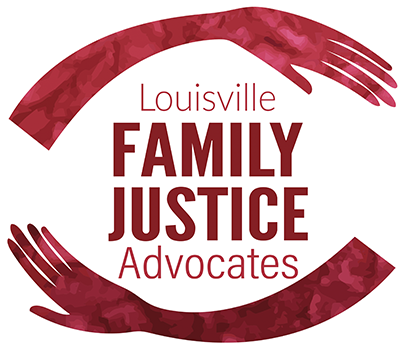By EB Saldana and Judi Jennings
On June 17th, Louisville Family Justice Advocates, ACLU-KY and The Bail Project-Louisville created a Virtual Forum centering on author and journalist, Sylvia A. Harvey’s important new book: The Shadow System: Mass Incarceration and the American Family. The Forum, linked here and below, integrated a keynote from Harvey, first-hand stories from Christina Walker and LeTonya McNeal, two courageous mothers featured in the book, State Representative Attica Scott, and Amanda Hall, ACLU-KY Policy Strategist. This powerful combination inspired participants to reimagine family justice and consider what it means in our community.

As Harvey demonstrates, the shadow side of mass incarceration is its impact on families, especially children. As incarceration increases, child welfare programs in states across the nation become shadow systems of the criminal legal system. Family Justice policies and practices operate in the intermediary spaces between these two systems, often filled with barriers and blind spots.
Harvey explains, “These systems are not communicating because they have distinct missions.” The criminal legal system’s mission is not the safety or well-being of the family, but to punish individuals. In the process of punishing one person, whole families are thrown into disarray. At the same time, what should be the safety net for the family — the child welfare system — hasn’t yet figured out how to truly protect children and does not take into account the challenges of parents and caregivers who want to reunite with their families after incarceration.
Harvey’s research for her book brought her to Kentucky. Here, as in many states, the “child welfare system” includes Child Protective Services, mental health services, foster care, adoption, care by extended family members, psychiatric hospitals, and an array of residential programs and group homes. When a parent is charged with a crime, judges, social workers, and court staff also make decisions about removing children from caretakers deemed inadequate.
Kentuckian Christina Walker shares her story of how her children were removed from her custody 3 days after she was arrested for failure to appear before a judge for nonsupport. After her release from jail eighteen days later, she spiraled into substance abuse, drew more serious charges and was adjudicated into a recovery program in another city. Being distant from her children prevented her from visiting them weekly and meeting other requirements of child welfare programs. Finally, faced with termination of her rights to custody of her two children, she agreed to their adoption.
Disparities in incarceration, sentencing, recovery and reentry of African American parents are inextricably linked to disparities in the welfare of children.
Harvey’s book highlights families in two other states, Mississippi and Florida, and in all 3 locations, she points to stark racial disparities in both the carceral and child welfare systems. LaTonya McNeal shares her story as an African American woman about the racial and economic inequities she experienced in both the criminal legal and child welfare systems.. Growing up in the housing projects of Chicago during the War on Drugs, she witnessed disparities in policing and sentencing for poor African Americans. Like Christina, she was incarcerated and lost her children. After being adjudicated into a recovery program in Louisville, she saw visible racial disparities in community access to medical services and educational programs. She also witnessed harsher penalties for African Americans when they relapsed, inevitable in recovery. Disparities in incarceration, sentencing, recovery and reentry of African American parents are inextricably linked to disparities in the welfare of children.
Harvey’s book is a wake up call not only to reimagine but also to remake Family Justice in Louisville. Mass incarceration and its shadow system of child welfare hits Kentucky’s children hard. Currently fifteen percent experience the incarceration of a parent. Since 2014, the state has seen massive increases in child removals and currently has the highest rate of child neglect and abuse in the country. The number of safe and healthy foster homes has not kept pace with the rapid increase in the number of children removed by the state. Until recently, Kentucky has relied on residential facilities and group homes, the least safe and healthy alternative for the children.
What does remaking Family Justice look like? During and after the Forum, participants identified key policy changes for remaking Family Justice in our community:
- State Representative Attica Scott supports requiring the Kentucky State Legislature to create Racial Impact Statements for all pending legislation to eliminate disparities.
- Kentucky Youth Advocates asks for prioritizing investments for children who have experienced abuse and neglect by supporting kinship caregivers.
- Louisville Family Justice Advocates urge District Judges to create and implement Family Responsibilities Statements for Pre-Trial Release, setting bail and sentencing.
- ACLU-KY promotes Increased support and resources for community-based recovery & reentry across the state.
You can watch the Forum in its entirety here:

